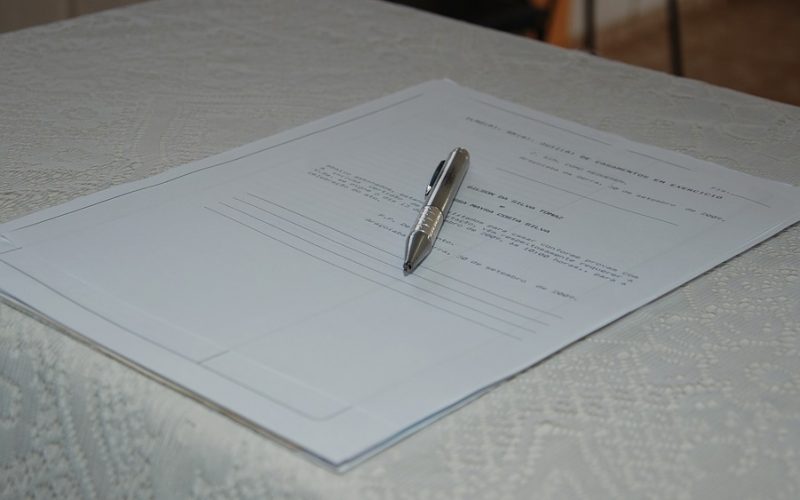Commitment is the foundation of any healthy, long-lasting relationship. But what happens when your partner shows reluctance to take the next step? It's not always easy to spot, as behaviour can differ from person to person. However, certain patterns and warning signs may indicate that they are hesitant to fully commit. Understanding these signals is essential to assess where your relationship stands and how best to move forward.
Whether they're avoiding discussions of the future or showing inconsistent behaviour, knowing what to look for can help clarify your next steps. Below, we've outlined some of the key signs that your partner might be reluctant to commit.
They avoid future-oriented conversations
One of the most obvious signs of commitment resistance is an unwillingness to talk about the future. When you're in a serious relationship, conversations about shared goals, plans, and dreams naturally come up. If your partner consistently shuts down discussions about moving in together, planning holidays, or even long-term topics like marriage or children, it might suggest they’re not ready—or willing—to take things further.
It’s important to note that everyone has their own pace when it comes to relationships. If you believe they're avoiding such talks out of fear or uncertainty, having a calm and open conversation may help you better understand their perspective.
Their actions don’t match their words
Actions often speak louder than words, especially in relationships. If your partner tells you they see a future together but their behaviour suggests otherwise, it's a red flag. For instance, they might say they’re committed but make little effort to strengthen the relationship. They may neglect to prioritise spending time with you, fail to integrate you into their life, or avoid acknowledging your relationship publicly.
This kind of inconsistency can leave you second-guessing their intentions. A committed partner's actions should align with their promises and demonstrate a genuine investment in building a future together.
They avoid labels or defining the relationship
Some individuals are quick to dismiss the 'label' of a relationship, stating that titles don’t matter. While this philosophy can work for some couples, avoiding labels often hints at a larger issue—an unwillingness to commit. If your partner repeatedly dodges or dismisses questions about defining the relationship or hesitates to use terms like "partner" or "significant other," it could signal discomfort with commitment.
This lack of definition can often leave one partner feeling confused about the relationship's direction, leading to insecurity and frustration in the long term.
They prioritise independence over partnership
Independence in a relationship is healthy, but when one partner always prioritises their freedom at the expense of the relationship, it's a concern. This might include refusing to integrate their life with yours, avoiding shared responsibilities, or scheduling most of their time for personal activities and friends instead of fostering a closer bond.
While it's crucial to have individuality within a relationship, a committed partnership should also involve compromise, shared responsibilities, and a balance between independence and togetherness.
They show a pattern of emotional unavailability
Being emotionally distant or inconsistent can indicate commitment issues. If your partner is reluctant to share their deeper thoughts and feelings, shuts down during emotional conversations, or keeps you at arm's length, they may have fears about vulnerability, which often ties into hesitating to commit.
A lack of emotional depth within the relationship can make it difficult to connect on a deeper level and may prevent the relationship from truly progressing.
You feel like you're putting in all the effort
If you find yourself constantly taking the initiative—whether it's planning dates, addressing relationship issues, or making compromises—it’s a possible sign of imbalance. A committed relationship involves equal effort from both parties. If your partner continuously relies on you to keep the relationship going without making comparable contributions, it might signal a resistance to shared accountability.
Equal effort is key to fostering trust and emotional security. If they’re unwilling to meet you halfway, it may be time to reflect on whether your needs are being met in the partnership.
What to do next
Recognising the signs that your partner is reluctant to commit can be disheartening, but it also offers clarity. The next step is deciding how to address your concerns. Start by having an honest conversation, expressing your feelings without blame, and asking for transparency about their intentions. They might be dealing with personal challenges that are worth unpacking together.
However, if their reluctance persists and leaves you feeling unfulfilled or unsure where you stand, it’s important to prioritise your own well-being. Being in a relationship where both parties are equally committed is essential for building a strong and lasting bond. If this isn't achievable, it may be worth considering whether the relationship aligns with your long-term desires.























